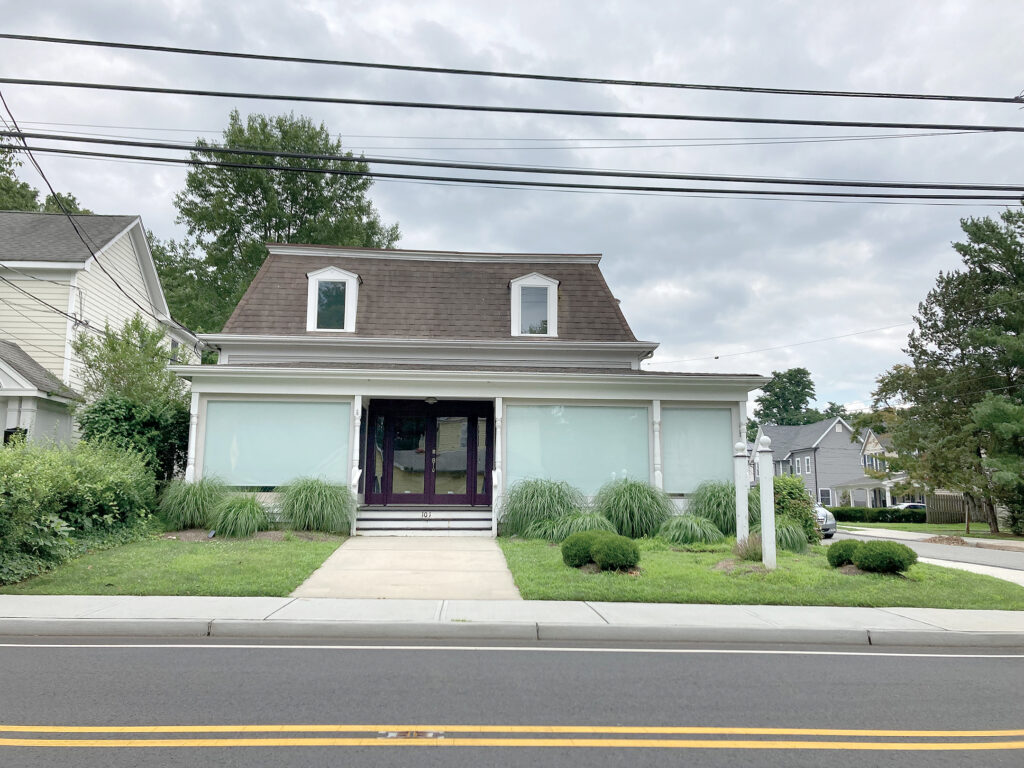
By Allison Perrine
RUMSON – Zoning board members found themselves in an “unusual” situation Jan. 18 when they were asked to weigh in on a matter with “little amount of legal precedent,” its attorney said that night.
The matter arose at the virtual Dec. 14 meeting when the board heard continued testimony on an application brought by The Peach Pit, LLC, seeking to open a youth academic facility on East River Road. At the time, eight zoning board members – six regulars and two alternates – were present when the meeting commenced at about 7:30 p.m.; seven members are required to make up a full board authorized for a vote.
For three hours, the board heard testimony from professionals and interested parties before taking a 10-minute break. When the board reconvened, one of the alternate members, Gabrielle G. McGill, did not return.
Later that evening, the board cast a vote and approved the application 5-2. It was set to be memorialized by way of resolution Jan. 18.
“The assumption, at least to the (board), was that for personal reasons or the lateness of the hour, alternate #1 was no longer on the Zoom meeting and had voluntarily exited the proceeding. As alternate #2 was available to make a seven-member board… the hearing continued,” board attorney Bernard M. Reilly wrote in a notice for the Jan. 18 hearing.
A half-hour after the meeting wrapped up, at 11:50 p.m. alternate member No. 1 sent an email to board chairman John Brodsky advising that she “had never ‘left’ or exited her device out of the Zoom meeting that night, and for reasons unknown to her, had been unable to ‘unmute’ herself and to speak to make her a continued presence and intent to participate known,” Reilly wrote. “The e-mail further advised that she had been prepared to vote and her tentative voting position” but did not request any further action or a revote.
McGill later clarified at the Jan. 18 meeting that had she been able to vote Dec. 14, it would have been against the application.
Reilly felt more information was required once he learned of the technical issues the day after the meeting. He learned that, allegedly, when the moderator muted all non-board attendees Dec. 14, alternate No. 1’s device also muted; she was unaware she could not be heard. That “clearly” raised an issue “as to the validity of the 5-2 vote,” Reilly stated.
“This is obviously a very unusual circumstance aris- ing out of the use of Zoom technology, because of the Covid pandemic. Research has uncovered no court decision arising from such similar Zoom circumstances,” he wrote, and concluded that a revote was in order.
Others disagreed.
“Whatever the reason for this unfortunate electronic mishap, it does not change the fact that she was electronically absent for the vote. As such, alternate No. 2 properly voted in her place,” said Jennifer Krimko of Ansell Grimm & Aaron, PC, the applicant’s attorney, Jan. 18. “Importantly, the Municipal Land Use Law states, ‘A vote shall not be delayed in order that a regular member may vote instead of an alternate member.’ It is… obvious that the law would also require that a vote not be delayed in order to allow one alternate mem- ber to vote in preference over another,” she said.
“It is no different than if alternate No. 1 were there in-person at the hearing and got an emergency phone call in the midst of the hearing. Even if alternate No. 1 wanted to participate in the vote, she would not have the right to ask the board to delay the vote and the board would be entitled to – and quite frankly, should be re- quired to – move forward with the vote with the next alternate,” Krimko added.
McGill noted that she found it “very frustrating” that she was unable to vote that night or speak up.
“That is why I emailed John Brodsky immediately to let him know that I was there and this is my vote. I’m new to this. I had no idea this would make the make-or-break difference,” she said. “But what is important for me is the process and that it be followed legally.”
Board member Al Shissias said he understands if the board doesn’t reopen the vote, “it will probably end up coming back anyway through additional litigation beyond the board,” but also said Krimko made “some really good points that could persuade me not to reopen the vote.”
“My opinion is that that’s kind of the exact point of having alternative members and I think Ms. Krimko kind of laid that out,” he said. “But on the flip side, if it’s almost guaranteed to come back to us no matter what, then I feel like we’re just wasting everybody’s time,” he said.
Ultimately, the board opted to revote which resulted in a 5-2 tally in favor of the application with dissenting votes from members McGill and C. Bernard Blum Jr.
“I believe this site is uniquely unsuited for this use; all this discussion about traffic, I think, supports that opinion,” Blum said before voting no.
The board’s next meeting is scheduled for Feb. 15 at 7:30 p.m.
Now approved, the project will convert the existing two-story office space and parking lot at 101 East River Road to a youth academic and community center. The first floor will be utilized as a youth play “café” with a kitchen and prepared food and drinks for sale, along with tables and counter seating. A lounge area with chairs, couches, a TV and games will also be provided.
On the second floor, the applicant will construct a learning center with space for tutoring, studying and an office. This space will be limited to members only and will require preregistration.
This article originally appeared in the Jan. 27-Feb. 2, 2022 print edition of The Two River Times.














